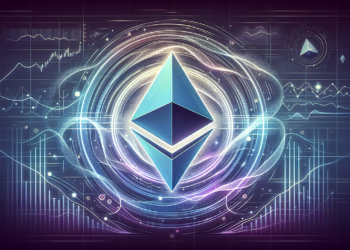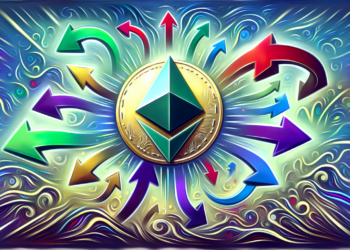Akash CEO Greg Osuri on DePIN's appeal to mainstream users — and regulators
Quick Take Regulators have acknowledged the unique benefits decentralized physical infrastructure networks (DePIN) bring to the table, according to Greg Osuri, the CEO of Akash, one such DePIN protocol. In a recent interview, Osuri said one of his goals is to convince regulators that DePIN should be overseen differently than other crypto sectors, and referenced a “productive meeting” held with a chief staffer from the U.S. House committee that regulates commerce and trade. Akash and its competitor InFlux T

Advocates of decentralized physical infrastructure networks, or DePIN , often claim that projects in the space, which generally aim to leverage blockchain technology in order to grant users control and ownership over physical infrastructure networks in the real world, from GPU chips to wireless data networks, deliver real-world value in a way that sets them apart from other crypto projects.
"DePIN is probably the only category in web3 where the value comes from outside the crypto sector," Borderless Capital partner Alvaro Garcia recently told The Block , which he argued also makes DePIN projects uniquely resistant to bear markets that can affect the rest of crypto.
In a recent interview from the Mainnet conference, Greg Osuri, the CEO of DePIN protocol Akash, which provides a decentralized marketplace for users to buy and sell computing power using its AKT -2.41% token, echoed the sentiment, and said regulators have taken notice.
"I spend a lot of time on Capitol Hill...I was in a meeting with one of the chief staffers of the [House Committee on Energy and Commerce]...and I introduced myself, and they were like, 'We know Akash, you are the intersection of DePIN and AI,'" said Osuri, calling the meeting "very productive."
"The brand Akash has in the mainstream is that it is disrupting existing oligopolies, which is what crypto is supposed to do," Osuri continued. "In a way, DePIN is...appealing to mainstream crowds a lot more than the other sectors of crypto."
DePIN has increasingly caught the attention of VCs such as Borderless Capital, which recently raised $100 million for its third DePIN fund. Its first two DePIN funds invested in projects such as Helium HNT -4.19% , which offers a decentralized wireless carrier , and GEODNET, a decentralized real-time kinematic (RTK) network for satellite navigation.
Osuri argues that DePIN's unique value proposition provides a justification for regulating the sector differently than other crypto sectors, such as decentralized finance (DeFi). To that end, Akash and its competitor InFlux Technologies, which also runs a decentralized compute network, recently announced the formation of a DePIN and Web3 advocacy group which aims to convince regulators of DePIN's value.
"There is an underserved regulatory need right now to make sure DePIN is regulated not as NFTs and DeFi, because regulators when they're looking at crypto are putting all the sectors into a single category and regulating it accordingly, so I think it's very important for us to decouple [DePIN and other crypto] regulation and ensure the lawmakers and legislators and regulators get the message," Osuri said. "[Akash and InFlux] put all the competition aside...as a way to show we can achieve unity, because we all care about the space...and through that unity I think we can achieve regulatory clarity."
Although DePIN projects often make use of crypto features such as blockchains and tokens, Osuri said communicating the benefits of DePIN is more important than championing the 'crypto' label.
"If you go to Akash's website, there's almost no mention of crypto for the most part...we're trying to communicate to the user to benefit rather than the architecture," Osuri said. "I avoid the word 'crypto' and nobody cares...[an AI person would say] I don't need 'verifiability' as long as I can get all the GPUs I need."
Disclaimer: The content of this article solely reflects the author's opinion and does not represent the platform in any capacity. This article is not intended to serve as a reference for making investment decisions.
You may also like
Controversy Over Ethereum and Actions Against North Korean Hackers

Could Ethereum’s Prices Echo 2016-18 Cycle? – Anticipating Record Highs by 2025
Exploring the Potential of a New All-Time High for ETH through Analyst Predictions and Network Activity Trends by 2025

Understanding Ethereum’s Recent Divergence and How It Impacts ETH Price Recovery Possibilities
Potential Reversal Looms: How Traders' Uncertainty Could Impact Ethereum's Price Bounce Back

Blockchain Association Urges Congress to Repeal IRS DeFi Broker Rule

